
Tinseltown / Shutterstock.com
Our homes are filled with everyday items that bring convenience and comfort to our lives, but what many pet owners may not realize is that some of these seemingly harmless household items can pose a significant risk to our furry friends. From the laundry room to the pantry, stay informed about potential dangers and take steps to create a safe haven for your furry friend. Read on to learn about 15 common household items that can be toxic to dogs.
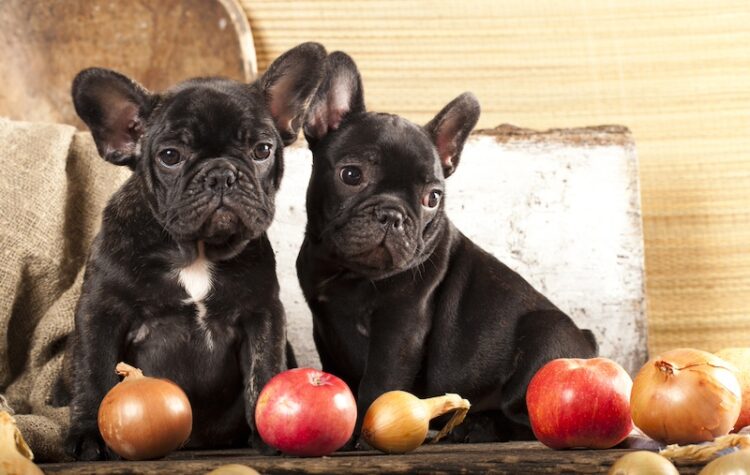
Tinseltown / Shutterstock.com
Onions
Onions contain compounds called thiosulphates, which are toxic to dogs. These compounds can cause oxidative damage to red blood cells, leading to a condition called hemolytic anemia. Even small amounts of onions, whether raw, cooked, or powdered, can potentially be harmful to dogs and may cause symptoms such as vomiting, diarrhea, weakness, and breathing difficulties. In severe cases, ingestion of onions can be fatal for dogs.

Tinseltown / Shutterstock.com
Grapes (and Raisins)
Grapes and raisins can be toxic to dogs, potentially causing kidney failure. The exact substance in grapes that causes toxicity is not yet identified, and not all dogs are affected the same way. Even small amounts of grapes or raisins can lead to symptoms such as vomiting, diarrhea, lethargy, and decreased urine production. In severe cases, ingestion can result in kidney failure and even death.
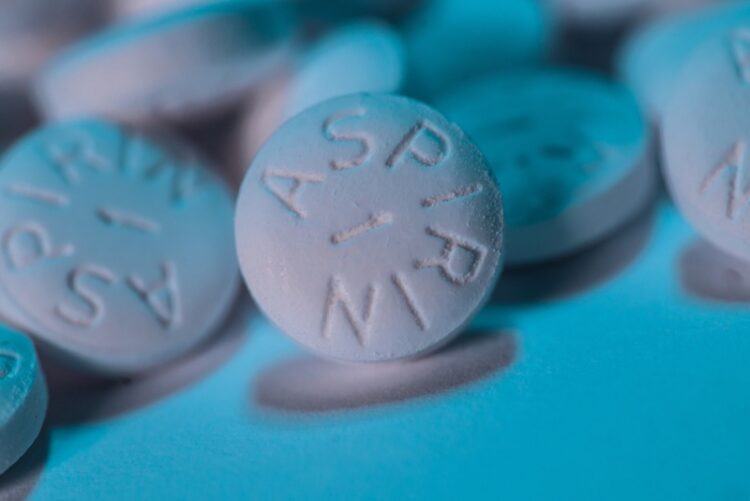
Tinseltown / Shutterstock.com
Aspirin
Dogs metabolize aspirin differently than humans, leading to a buildup of the drug in their system, which can cause gastrointestinal irritation, ulcers, kidney damage, and in severe cases, liver failure. Additionally, aspirin can interfere with blood clotting mechanisms in dogs, increasing the risk of bleeding disorders.

Tinseltown / Shutterstock.com
Chocolate
Chocolate contains theobromine and caffeine, both of which are toxic to dogs. These substances can cause vomiting, diarrhea, rapid breathing, increased heart rate, seizures, and even death in severe cases. Dogs metabolize theobromine and caffeine more slowly than humans, leading to a buildup of these toxins in their system. The darker and more concentrated the chocolate, the higher the levels of theobromine and caffeine, and the more dangerous it is for dogs.

Tinseltown / Shutterstock.com
Garlic
While garlic might be a flavorful addition to our meals, it can pose serious health risks to our furry friends. When dogs ingest garlic, it can cause damage to their red blood cells, leading to a condition called hemolytic anemia. This can result in symptoms such as weakness, vomiting, diarrhea, and even collapse in severe cases. The toxic compounds in garlic, such as thiosulfate, can build up in a dog’s system and lead to these harmful effects.
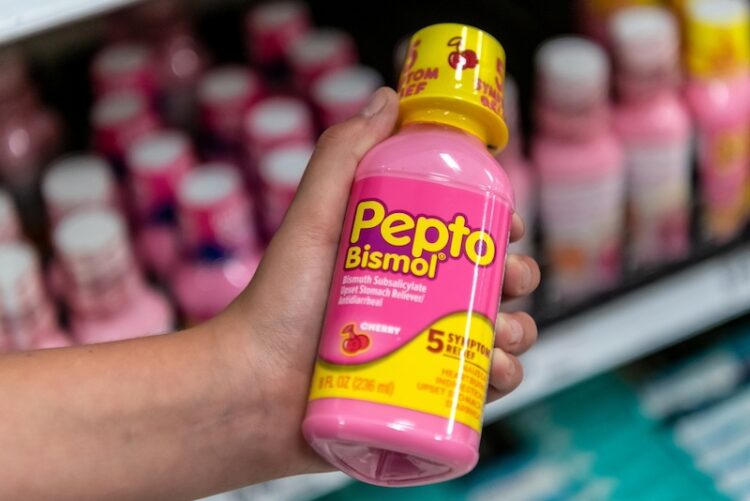
Tinseltown / Shutterstock.com
Pepto Bismol
The active ingredient in Pepto-Bismol, bismuth subsalicylate, can be toxic to dogs, particularly in large doses. Dogs lack the necessary enzymes to metabolize salicylates effectively, leading to potential toxicity. Ingestion of Pepto-Bismol can result in symptoms such as vomiting, diarrhea, stomach ulcers, and in severe cases, even liver damage.

Tinseltown / Shutterstock.com
Coffee
Coffee contains caffeine, which can be highly toxic to dogs. Just like in humans, caffeine can stimulate a dog’s nervous system, leading to symptoms such as restlessness, rapid breathing, increased heart rate, tremors, and even seizures. Ingesting even small amounts of coffee grounds or brewed coffee can pose a serious risk to a dog’s health.

Tinseltown / Shutterstock.com
Chewing Gum
Xylitol can cause a rapid release of insulin in dogs, leading to dangerously low blood sugar levels, liver failure, and even death. Even a small amount of chewing gum containing xylitol can be enough to cause severe health issues in dogs. It’s crucial to keep all chewing gum, as well as any products containing xylitol, out of reach of dogs.

Tinseltown / Shutterstock.com
Alcohol
Dogs lack the ability to metabolize alcohol like humans do, leading to potential alcohol poisoning even from small amounts. Ingesting alcohol can cause symptoms ranging from disorientation and vomiting to difficulty breathing, seizures, and even coma in severe cases. It’s important to keep all alcoholic beverages, including cocktails, beer, and wine, out of reach of dogs.
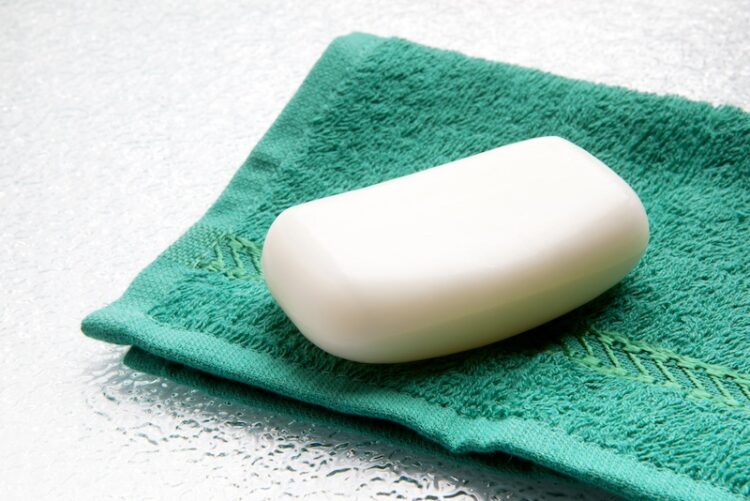
Tinseltown / Shutterstock.com
Bar Soap
Many bar soaps contain chemicals and ingredients that can be toxic to dogs if ingested. These ingredients can cause gastrointestinal upset, including vomiting and diarrhea, if a dog ingests even a small amount of soap. Additionally, some bar soaps may contain fragrances or essential oils that can irritate a dog’s skin or cause allergic reactions.

Tinseltown / Shutterstock.com
Mothballs
Mothballs typically contain chemicals such as naphthalene or paradichlorobenzene, which can cause serious health issues if ingested by dogs. Even eating small amounts of mothballs can lead to symptoms like vomiting, diarrhea, difficulty breathing, and seizures. Moreover, the scent of mothballs can be attractive to dogs, increasing the risk of ingestion.

Tinseltown / Shutterstock.com
Macadamia Nuts
These nuts contain substances that can lead to severe toxicity in dogs, causing symptoms like weakness, vomiting, and tremors. Even a small amount can trigger adverse reactions. It’s essential to keep macadamia nuts out of reach of dogs and be cautious about any foods containing them.
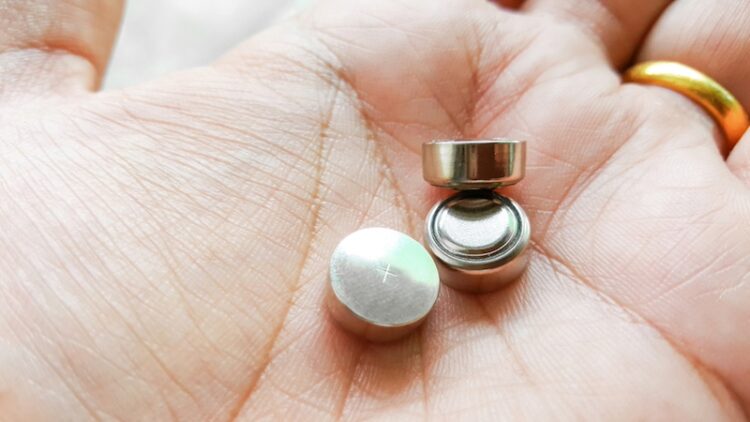
Tinseltown / Shutterstock.com
Batteries
Dogs may be drawn to chew or play with batteries due to their size and shape, but this can lead to dire consequences. Batteries contain corrosive materials such as acids or alkalis, which can cause chemical burns to a dog’s mouth, throat, and digestive tract if ingested. Additionally, batteries may leak toxic substances like mercury or lead, which can further harm a dog’s health.
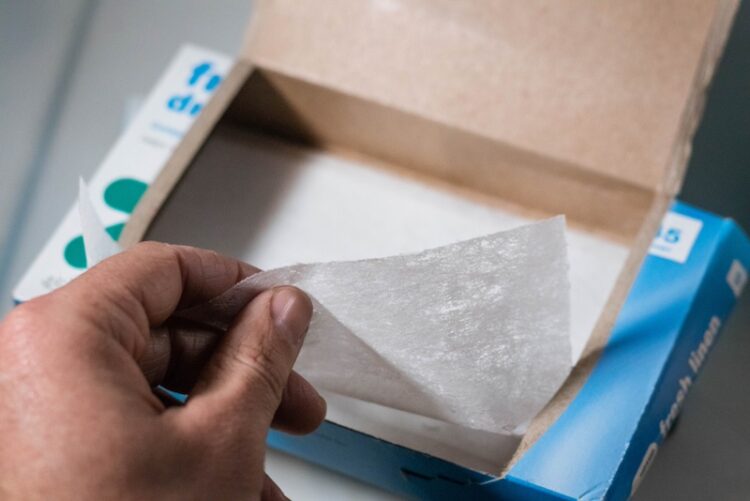
Tinseltown / Shutterstock.com
Dryer Sheets
These sheets often contain chemicals and fragrances that can be toxic to dogs if ingested or even if they come into contact with their skin. Ingesting dryer sheets can lead to symptoms such as vomiting, diarrhea, drooling, and difficulty breathing.

Tinseltown / Shutterstock.com
Citrus Fruits
Citrus fruits such as oranges, lemons, and limes contain essential oils and compounds like limonene and psoralens, which can be toxic to dogs. Ingesting large quantities of citrus fruits or their peels can lead to gastrointestinal upset, including vomiting and diarrhea. The acidity of citrus fruits can also irritate a dog’s digestive system and may even cause inflammation or damage to the esophagus and stomach lining.

Comments
Loading…